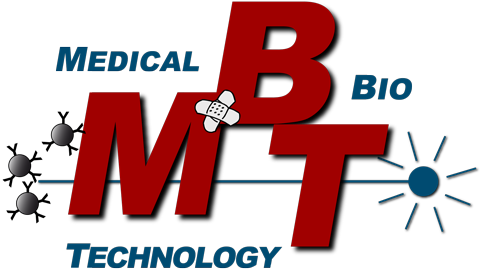Teaching

Medical Biotechnology is also known as ‚Red Biotechnology‚ and represents a discipline within the field of process engineering/process technology. As such it addresses problems in biomedicine, biophysics and systems biology to be resolved with process engineering and biomedical engineering approaches. The discipline is embedded in a highly multidisciplinary context and requires the joint efforts from biomedical scientists, biologists, physicists and life science engineers. Progress in biomedicine is achieved through novel insights into cell technologies, diagnostics and device mechatronics as well as applications of genetic engineering to cell and organ systems. Many aspects of Medical Biotechnology are developped and optimised by engineers to hand them over to clinicians for clinical translation at a later stage (e.g. Tissue Engineering, Biomechatronics). Selected technologies available at the Institute of Medical Biotechnology comprose e.g. methods in Molecular Biology, Biochemistry, ion channel technologies and optical laser-micro-imaging.
Concept
In several teaching courses, the teaching concepts in Medical Biotechnology highlight the history and applications of methodologies and technologies with applications to organ and cell systems in vitro using novel cell- and organ-based diagnostics and interventions from process engineering. Examples are immune technologies using genetic engineering aspects (for instance for antibody production on an industrial scale) Tissue Engineering & prosthetics, biomechatronic systems, malaria biotechnology, optical high trhoughput screening platforms, high pressure biotechnology as well as optical technologies in life science. In our classes, we present many examples from basic research in engineering as well as potential later areas of work in industry and research and development.
Internships
The Institute of Medical Biotechnology (MBT) runs Student-Labs at the Röthelheim-Campus which are approved PC2 environments for genetic engineering work. Here, our students obtain the possibilities to practice lab work related to immune fluorescence technologies, cloning of plasmidsgel electrophoresis and high-end microscopy. In ongoing Master and PhD theses, cell technology topics can be addressed with state-of-the-art optical metrologies. For instance, we have a unique multiphoton system for the studies of non-linear phenomena in cells and scaffolds made from biomaterials. In our research labs in Ulrich-Schalk-Str. (Alterlangen) multisdisciplinary research questions for doctoral candidates are addressed in joint work with material scientists, biologists, physicists and process engineers.






